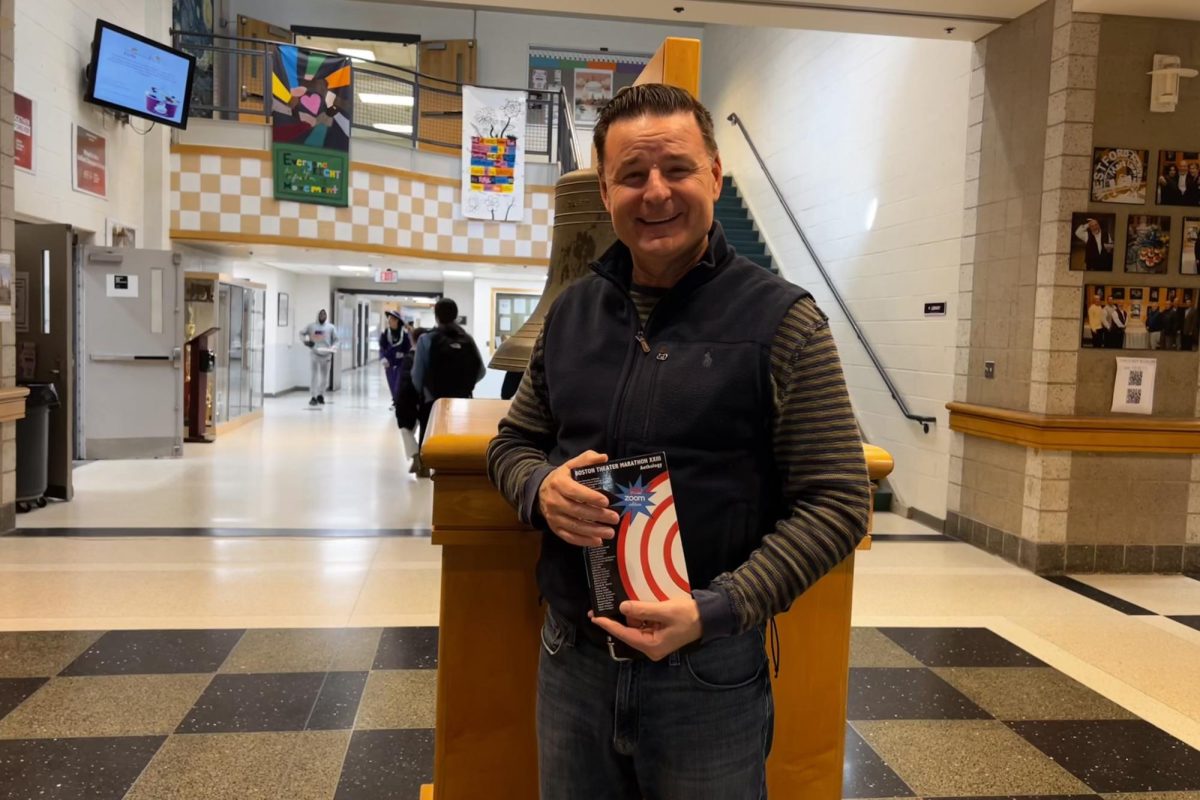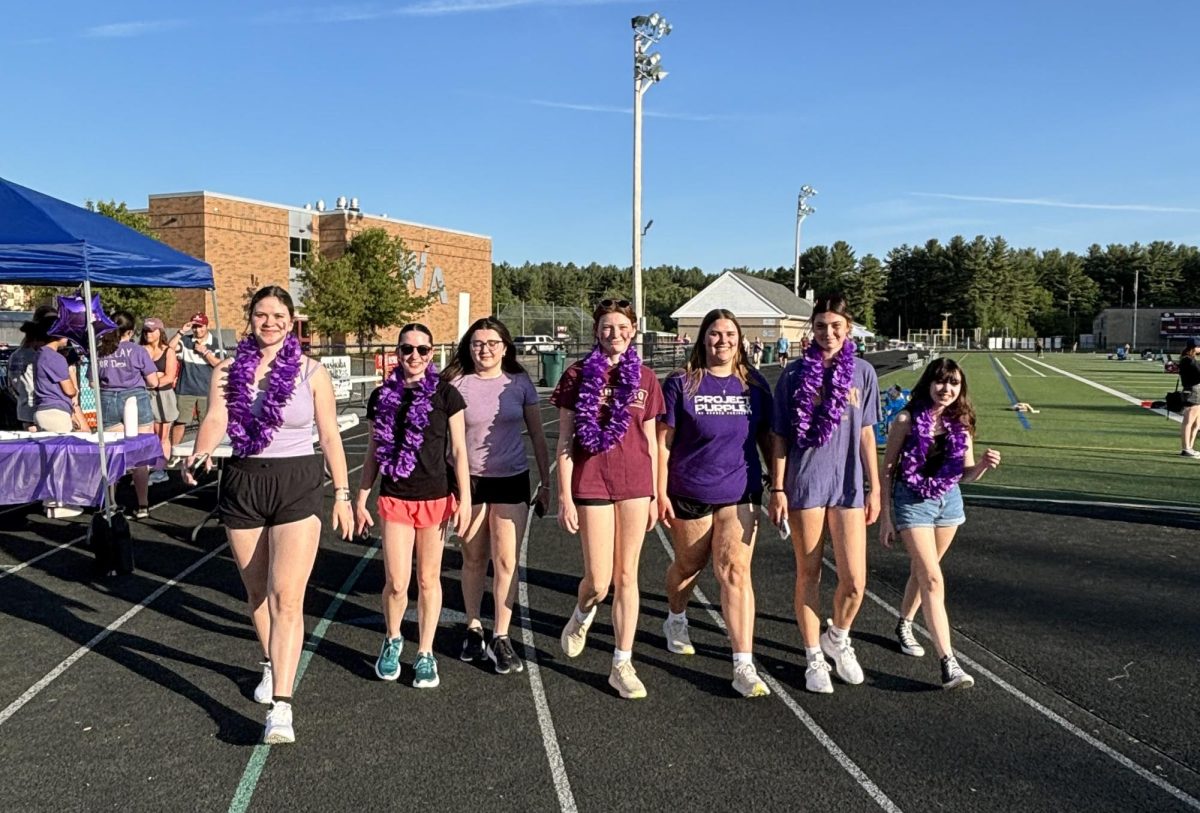“Mr. Gorham, look at this!” A group of students crowds around a box of documents in the Harvard Schlesinger Library. WA Modern American History teacher Christopher Gorham makes his way to them to examine what they are so eager to show him. It is a 1945 citation of U.S. President Harry S. Truman awarding the Presidential Medal of Freedom to Anna Rosenberg, the first woman to receive this honor.
It was 2019 when Gorham first saw the citation, but he will never forget that moment. It led him to explore more of the documents in the box, piecing together Rosenberg’s story. She was a Jewish Hungarian immigrant who went on to become the Assistant Secretary of Defense, the highest position a woman had ever held in the military, and played a critical role in helping the United States’ side win WWII, among other accolades. Gorham began to wonder: with all these achievements, why was it that she was rarely discussed in the history books?
It was then that he decided Rosenberg’s story had to be told, and he would be the one to tell it.
“It was just this magical moment where I was struck by lightning,” Gorham said. “I thought, ‘This book needs to be written; this remarkable woman’s story needs to be told.'”
Gorham achieved his goal in February 2023, when The Confidante: The Untold Story of the Woman Who Helped Win WWII and Shape Modern America, his biography of Rosenberg, was finally published. The years he spent working on the book were filled with copious research as he combed through papers left behind by Rosenberg’s son as well as several boxes of books, microfilm, newspapers, and photographs at the Schlesinger Library, cross-referencing with university libraries and presidential libraries across the country as he went along.
“From all that [material], a portrait emerged,” Gorham said. “A storyline emerged for me and I was able to put those pivot points of history together in a narrative fashion.”
Gorham was recently able to share more about his experience of researching and writing about Rosenberg with wider audiences during his book promotion tour, which he returned from on January 23rd after taking the fall semester off. Some stops on the tour included New York, Philadelphia, Washington D.C., Houston, Kansas City, and his hometown of Ann Arbor, Michigan.
At each stop, he spoke for about an hour, balancing putting emphasis on Rosenberg’s achievements and what went into crafting The Confidante with addressing related modern-day issues, such as the systemic discrimination that often causes stories like hers to be swept under the rug.
“It’s nice to be able to talk about some timely issues that are going on around the world,” Gorham said. “You can’t really dissociate the history we read in history books or the history that we watch on streaming shows from the history that’s happening all around us every day.”
Since Rosenberg was a Jewish woman, many of the venues where Gorham was able to connect with readers were Jewish community centers or temples around the country. This provided Gorham with an opportunity to get a closer look at how Jewish Americans live, as well as deliver to them the empowering message of a remarkable figure from their community. He describes the type of conversation he would have at these locations as an “hour of positivity.”
“We’re talking about a Jewish American woman hero who helped defeat fascism abroad and helped the United States become a great democracy at home,” Gorham said. “And those lessons, they really resonate, even more so with [Jewish] audiences.”
Along with celebrating Rosenberg’s impact, Gorham also tackled some difficult questions that often arise about how much Jewish voices in the government were being heard during World War II. President Roosevelt, who was in charge during the war, had many Jewish advisors, but these advisors were often unable to have tough conversations with him about helping the Jewish victims in Europe. Scholars have speculated on why this was the case, but the reasons remain murky and leave many feeling dissatisfied.
However, Rosenberg was an example of someone who did manage to have influence on the President in this regard, and Gorham was able to quell some of unease surrounding the issue by discussing the numerous ways in which she advocated for the Jewish victims.
“Rosenberg […] did have conversations with President Truman about the plight of Jews,” Gorham said. “When she was in Europe in 1945, she helped make sure that the Jewish victims of the Holocaust were not being housed in displaced persons camps alongside their former tormentors. And not only that, when she got back to New York, she spearheaded the relief efforts on behalf of European Jews, sending millions of dollars, bolts of cloth, tins of food, and bars of soap to the refugees left in Europe.”
After the book promotion tour, The Confidante has garnered much more attention, even being nominated in the 2023 Goodreads Choice Awards for Best History/Biography. Now that Rosenberg’s story has become more widely known, it is continuing to grow across other mediums. There is a documentary on her life that is currently in the very initial stages of development, and Gorham and his agent are looking at the possibility of a TV show or film being produced someday.
“There’s such a tremendous appetite out there for her story that I think eventually we’ll be surprised,” Gorham said. “Something might happen; some dramatic presentation of her story for the screen.”
No matter how Rosenberg’s story is broadcasted to wider audiences in the future, Gorham is glad he has been able to spark so much conversation and interest about her life. Preventing important stories like hers from slipping through the cracks of history feels very fulfilling, and he hopes that Rosenberg—and the many other figures like her—will eventually become one of the names students will remember alongside the famous names they already learn about in history class.
“It’s the stories we share with each other that create history, and in Anna Rosenberg’s case, her story was lost,” Gorham said. “So it’s been tremendously gratifying for me to be able to be the mouthpiece to bring back her story. I hope that her story will continue to grow and grow and grow, because it really deserves to be out there.”








